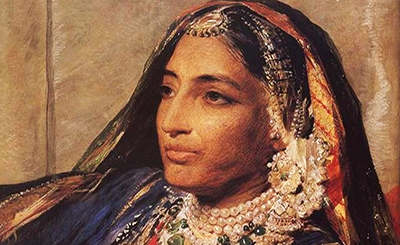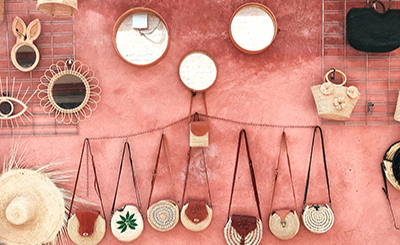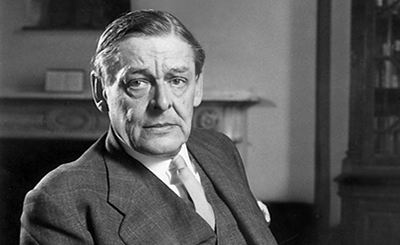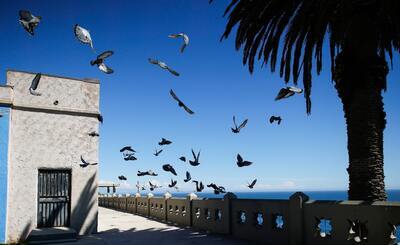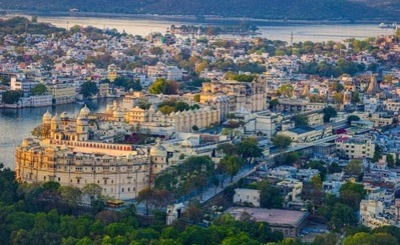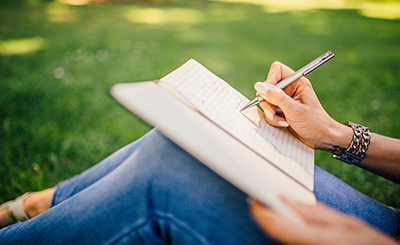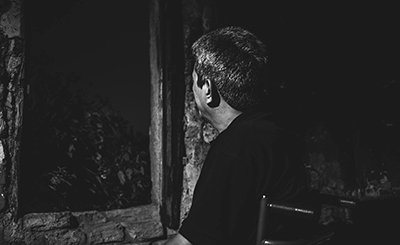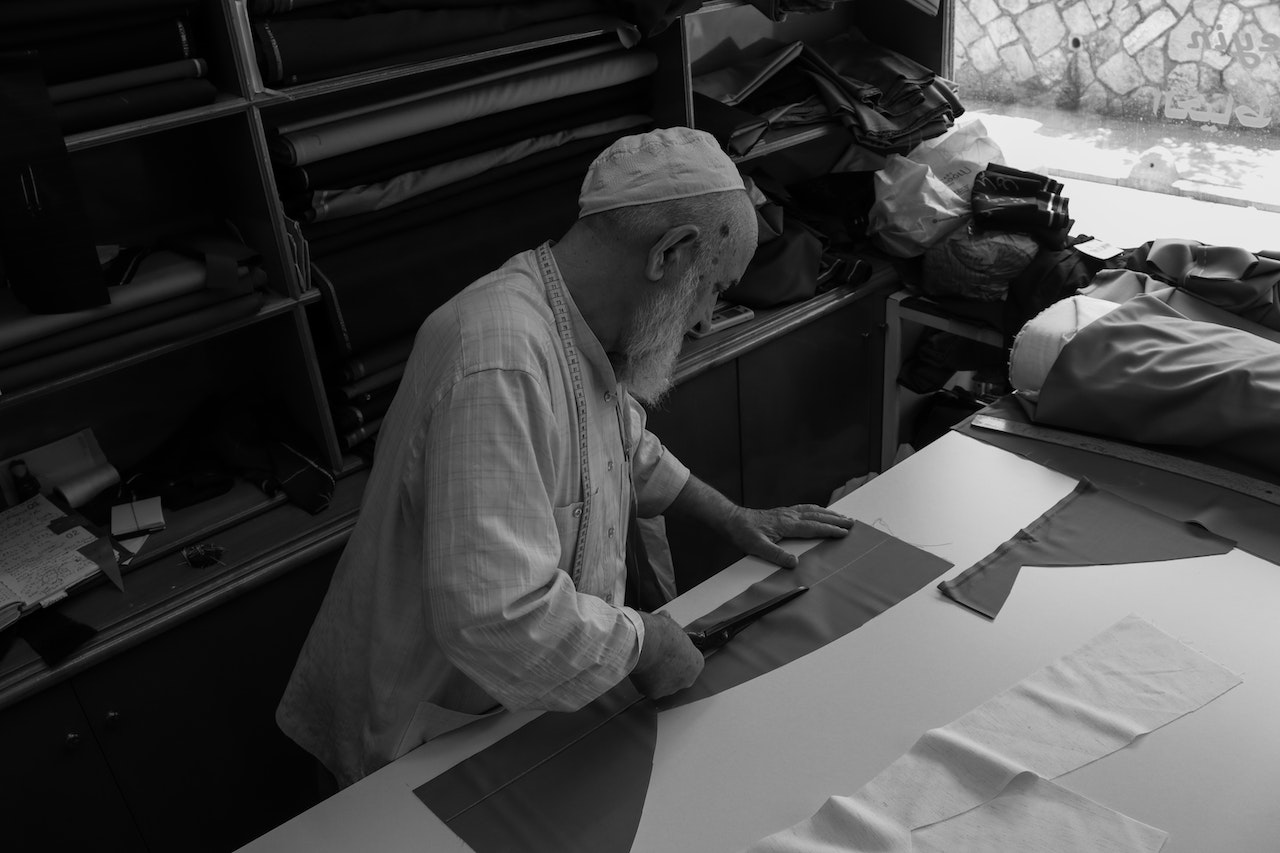
Photo for representation purpose only. Kolkata photos below courtesy of Adam Ferguson
When I was 18 years old traveling to India for the first time, I didn’t even know Muslims lived there. It wasn’t until I met Manu and his family, that I was introduced to the culture. I wasn’t just introduced; I was taken in, and I became a part of their family
There I was, wading through sludgy water up to my thighs. Trudging down the hectic, soaked streets of Kolkata, on my way to Manu’s house. The gods of the late summer skies were weeping the last of their cyclical woes. Manu had invited me for dinner, and I didn’t want to be late. I turned onto Marquis Street, as a rickety, wooden, hand-pulled rickshaw floated passed me, where a single man sat on his thrown, upon his chariot, avoiding the contaminated water at all costs. A small, fragile man, that appeared to be made solely of wrinkled, leathery skin and protruding bone, with half of his body submerged under the murky water, pulled the rickshaw with ease, like a captain guiding his ship. The rickshaw wallahs are the knights in shining amour when the floods come, as they are the only viable source of transportation into the inner city. I was here for an adventure and experiencing the struggles of the locals was at the top of my priorities. Disease and bacteria weren’t even thoughts in my mind. I was fully submerged.
A gauntly man huddled up on a concrete platform, surrounding a girthy Pipal tree, sat with a portable stove and a steaming pot overflowing with frothy, creamy black tea. I hopped up onto the platform next to the man, taking a steaming cup of chai in a smooth clay cup from his wrinkled hands. I sat there, on the banks of this river, sipping the warmth, sheltered by the earths stretching limbs. Observing the monsoon waters continue to slowly erode the lingering, concrete remains of British Imperialism. The hot, creamy, liquid with nuances of ginger, cardamom and cinnamon, slid down my throat and, in that moment, I found God. A solace amongst the disorienting, drenched chaos. There was something more to this beverage. I could feel it circulating within me, stirring my soul from the first moment I took a sip.
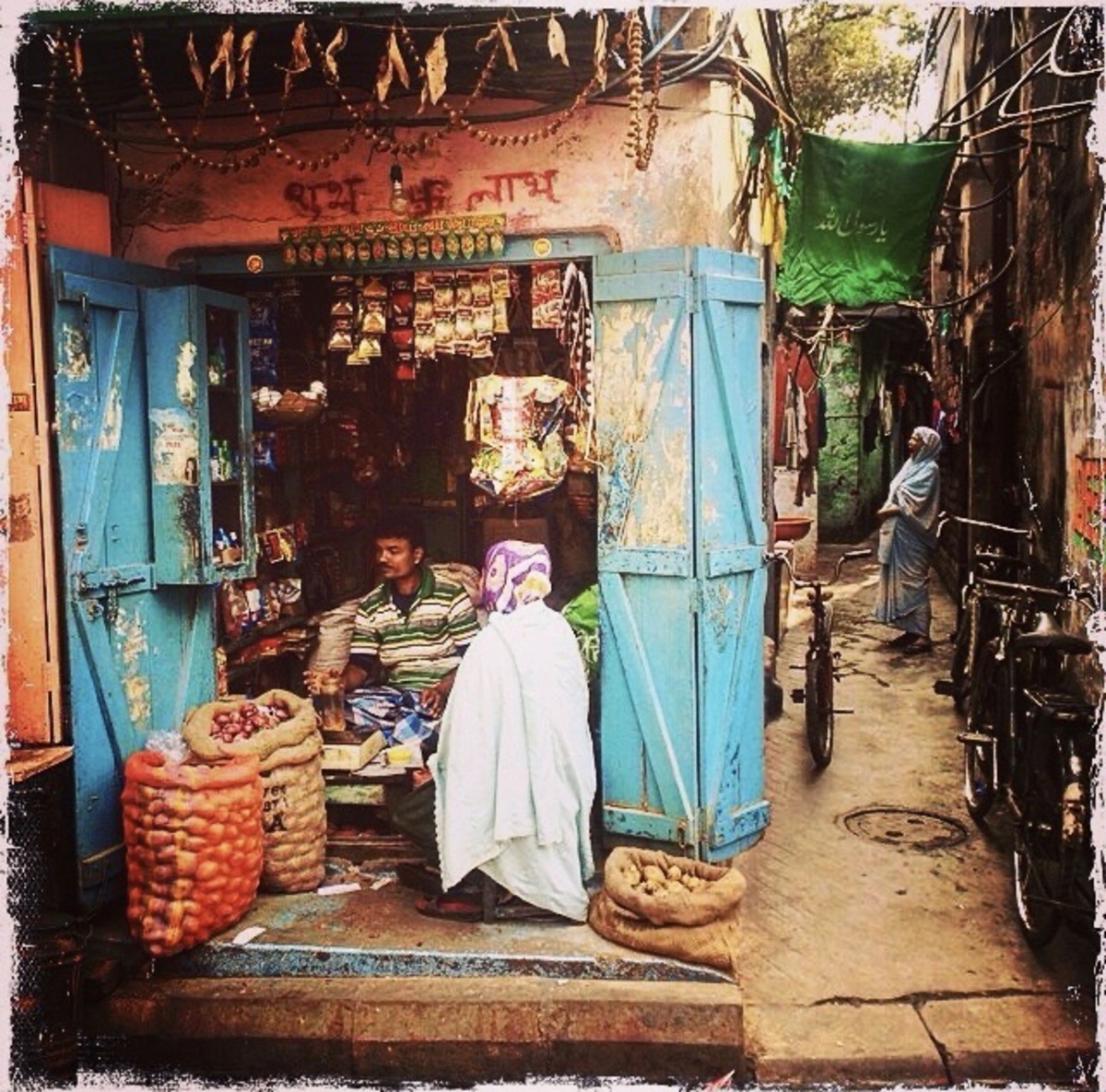
I came to fall in love with Kolkata. The boasting life, pouring out onto the streets in all forms, colors, smells and sounds. A familial, buzzing, chaotic energy that permeates and rises into a smoggy harmonic symphony filling the sticky air. Melting into my surroundings, I embraced this place that transformed my perspective of the world from what I thought I knew it to be. Growing up in a secluded maple forest in Vermont, a sheltered perspective tended to overshadow that faint, distant voice within, screaming at me to extend myself out into the mysterious, unknown world. I was embracing and perceiving things I only saw in my young, National Geographic binge reading days. Where I would surround myself in dusty piles of magazines my dad had collected over the years, in our mildew drenched basement, escaping to the ancient cities, jungles, mountains and different cultures of the world.
Manu was a humble tailor I met one day, when I needed to fix a pair of pants. I brought them to his small shop on the corner of Cowie Lane, just off Sutter Street…the tourist ghetto. Standing in front of his tiny, hole in the wall shop, Manu, slowly lifted his head from his sewing machine. His eyes in a concentrated gaze of wonder, peered over his glasses onto me.
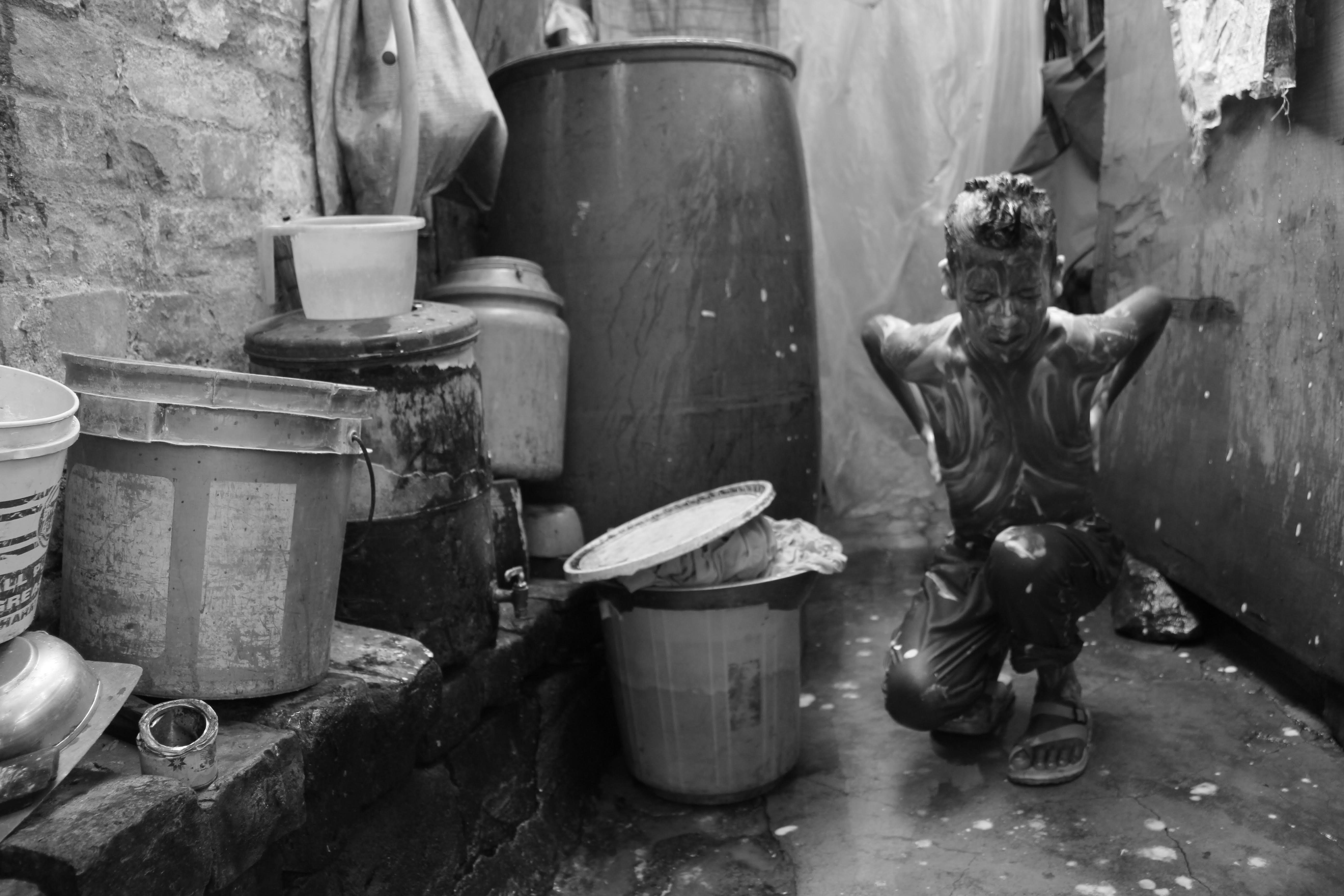
“Yes?” Manu softly asked.
“Can you fix my pants?” I shyly asked, holding up the pants, revealing the massive rip down one of the legs. Manu gently took the pants, giving them a thoughtful examination, then casually put them through his machine, as if it was an extension of his body, then modestly handed them back to me.
“That was so fast! Thank you, sir, how much do I owe you?” I eagerly asked, showing him a selection of rupees.
“No problem. You are guest of India. Allah Akbar,” he humbly stated. Praising God as the greatest force and witness to all things. I was confused and concerned he wasn’t taking my money, but I couldn’t force him. Suddenly, I saw a boy walking by with an oversized kettle and a tower of clay cups arched over his shoulder.
“Can I buy you a cup of chai?” I offered. Quickly wondering why this boy was out in the middle of the day, selling tea. Most likely working to support his family. You could see the innocence in his eyes, that just wanted to be a kid again. Manu immediately stopped what he was doing and gave me that same concentrated gaze of wonder.
“You…want to drink tea?” Manu confirmed.
“Yes,” I reassured him.
“Phwwt! Eyy, bhai!” Manu yelled to the boy. He immediately crossed the street and started pouring us two cups of tea.
I watched him perform his perfected craft. Pouring tea like he had been doing it his whole life. “You, come sit in my shop,” Manu said, inviting me in, as he began building a chair out of clothes and scraps of fabric. I squeezed passed his sewing machine, taking a seat on the cushy, ingenious improvisation. The shop was about the size of a closet, so there wasn’t much room to go anywhere else. We took our steaming tea in clay cups, and we sat and talked into the night.
“You, come my home…eat food? Meet my family?” Manu asked with his concentrated gaze, awaiting my response.
“Right now?” I abruptly asked, looking outside to see it had become quite late. I started to realize, that cup of tea was doing way more than I intended it to do. Manu didn’t just see it as a cup of tea, he saw it as a sign of trust…a sign of a newfound friendship. Buying someone a cup of tea in India was more powerful than the simple action of it. It was deeper than that. Tea was an external means to an internal bond. I was unintentionally beginning a lifelong friendship through a gesture which was intended as simple, common kindness. I was beginning to discover the true Indian spirit through a cup of chai.
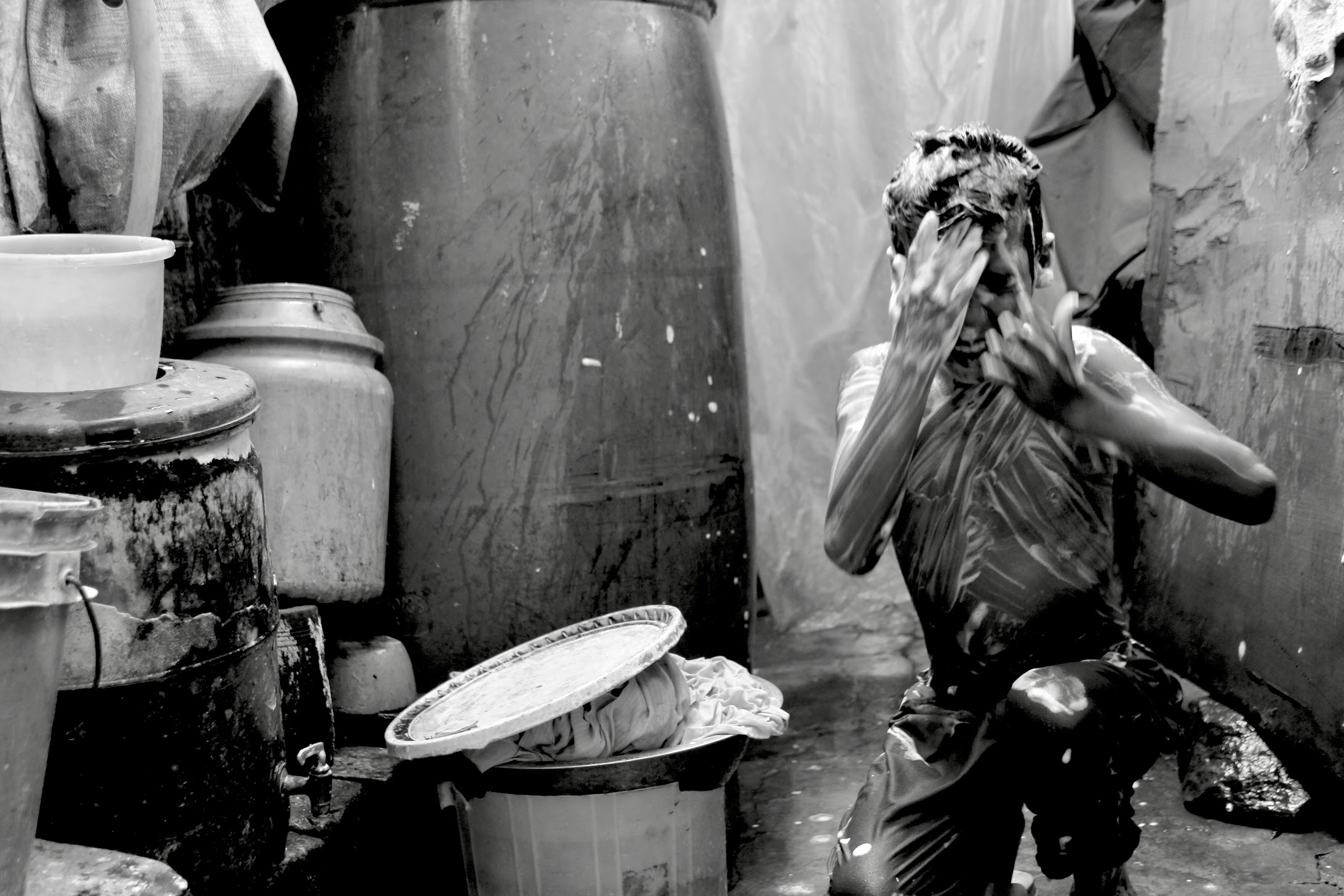
Collin Lane was narrow, dank and dark. I followed Manu down the hidden, deep ally. It was quiet, and only the echo of falling droplets of water filled the air. Manu lived at the end of one of the ally’s tributaries. The narrow strip of space was lined with buckets full of water, hanging rags and a compilation of other scattered, damp objects. At the end of the ally was a curtain with an ominous red glow seeping through the cracks. Manu lifted the curtain, revealing an old woman, lying in a single bed in a 10 x 10-foot concrete room. The woman stared at me with softened eyes I will never forget. They pierced through me and were speaking to my soul. She had never seen a foreigner before. Our eyes locked for what felt like eternity.
“Sit down,” Manu ordered, interrupting our gaze, as he began laying out a bamboo mat on the cement floor. “This is my mother. She has broken hip for…20 years!” Manu explained. His mother broke her hip and had been in the family’s only bed for 20 years. They couldn’t afford to get her the surgery she needed. So, Manu, his wife, Afgufta, their two sons, Abdullah and Ibrahim, all slept on bamboo mats, on the cement floor. Their two daughters, Sana and Sona were off at school. Agufta came in, wearing a reticent, but warm smile, hiding half of her face behind her sari. She started placing plates of food on the bamboo mat. Steaming basmati rice and plates of some kind of curry.
“What...is this?” Manu asked, with a testing smile, stroking his beard with one hand, and pointing to the curry with the other. I began inspecting the mysterious thick sauce with chunks of some kind of meat. The only source of light was the dim, red, bare light bulb, only bright enough to reveal eyes and shadows of the cockroaches roaming through the room, like they were a part of the family.
“I don’t know,” I admitted, shrugging my shoulders and shaking my head, with my hands up. I could barely even see what was in front of me.
“This…cow meat,” Manu revealed. Motioning his hand, indicating for me to start eating, as he poured the curry over my plate of rice. Of course, only Muslims eat beef in India and in most places, it is prohibited to kill cows, as they are holy in Hinduism. Manu and his family were Muslims, so beef was a regular part of their diet, and it is legal to slaughter cows in Kolkata because of the boasting Muslim population. This would be my first-time eating meat in India as I tended to stick to the safer, vegetarian options. Of course, being in my new friend’s home for the first time, there was no way I could refuse their generous hospitality.
With my hand, I scooped up a chunk of beef mixed with some rice and held it up to my mouth. I was immediately hit with a stench. A decaying, rotting stench with faint notes of chili. I closed my eyes, chewed and swallowed as quickly as possible, then continued to look down at my full plate. Through the dim, red darkness, Manu could detect my struggling demeanor.
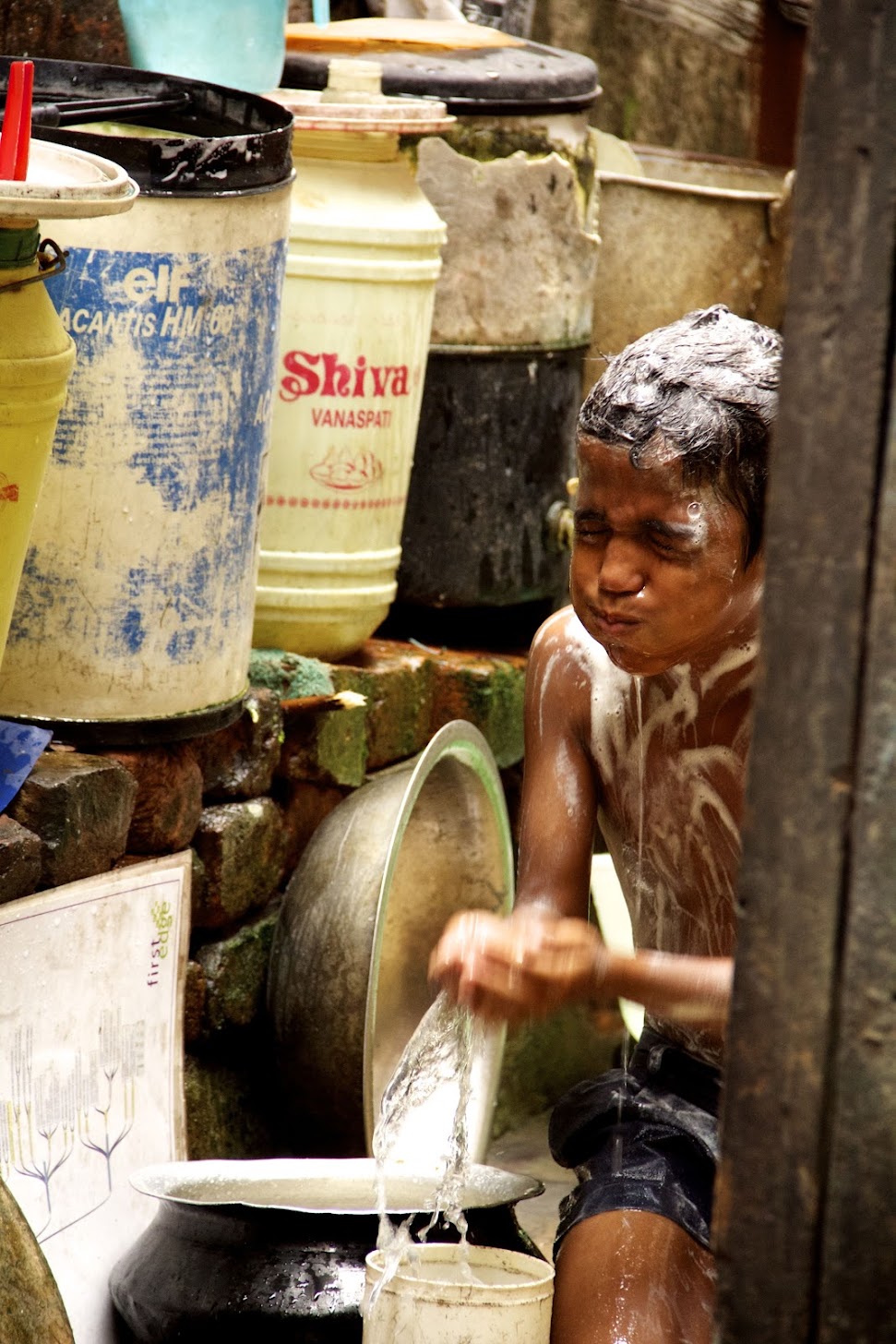
“You need more lime,” Manu told me, squeezing a wedge of lime over my plate. The citrus, cutting some of the rotting flavor. “Me, I am poor man…no refrigeration,” Manu explained as he ran his finger across his plate, making sure to get every-last-bit of sauce. Every year during the Muslim holiday of Eid, Manu’s sister and her husband would buy a cow and split the meat between their families. Unfortunately, they had no way to freeze or refrigerate the meat, so it simply sat out in the humid, muggy, stagnant air.
As I finished my plate — of what at that point, tasted mostly of citrus — a short, dark figure appeared at the door. A pair of glowing eyes, that felt like God, were locked onto mine. The small figure darted across the room and jumped on me.
“This is my son, Ibrahim,” Manu told me, as he smacked him on the back of the head as a message to take it easy on me. Of course, Ibrahim was in a state of excited shock. He couldn’t begin to comprehend why there was a foreign man sitting on the floor in his house, eating dinner. But he couldn’t resist taking advantage of someone new to climb on. In that moment, Ibrahim and I connected like an uncle and nephew.
Over the next few weeks, I became a part of Manu’s family. I would sit in his shop every day, talking, drinking chai, meeting his friends, and going to his home for lunch and dinner, and to teach his children English. Manu and I had a bond…like we knew each other from another life. One of those things you can’t explain, but is just a mutual feeling, shared by two people, from the opposite sides of the world that barely speak the same language. A dreamy nostalgia hit, and we could feel the ebb and flow of existence in our interactions, both with something enchanting to offer one another.
At a young age, I had a desire to know and understand people of Muslim faith. It didn’t make since to me why the country I lived in, seemed to have so much hatred and anger towards people with a particular belief system. Even with the catastrophe of 9/11, it seemed close-minded and arrogant to generalize a whole group of people. I refused to believe what I was being told. I purposely wanted to resist what the media was feeding me, and I became curious about those countries where 1.9 billion Muslims live. When I was 18-years-old traveling to India for the first time, I didn’t even know Muslims lived there. It wasn’t until I met Manu and his family, that I was introduced to the culture. I wasn’t just introduced; I was taken in, and I became a part of their family. I made the best friends I have ever made in my life. I have come to know Muslim people as being some of the most kind and hospitable people on the planet. They showed me the capacity of what the human spirt is capable of, through a level of modesty I had never experienced.
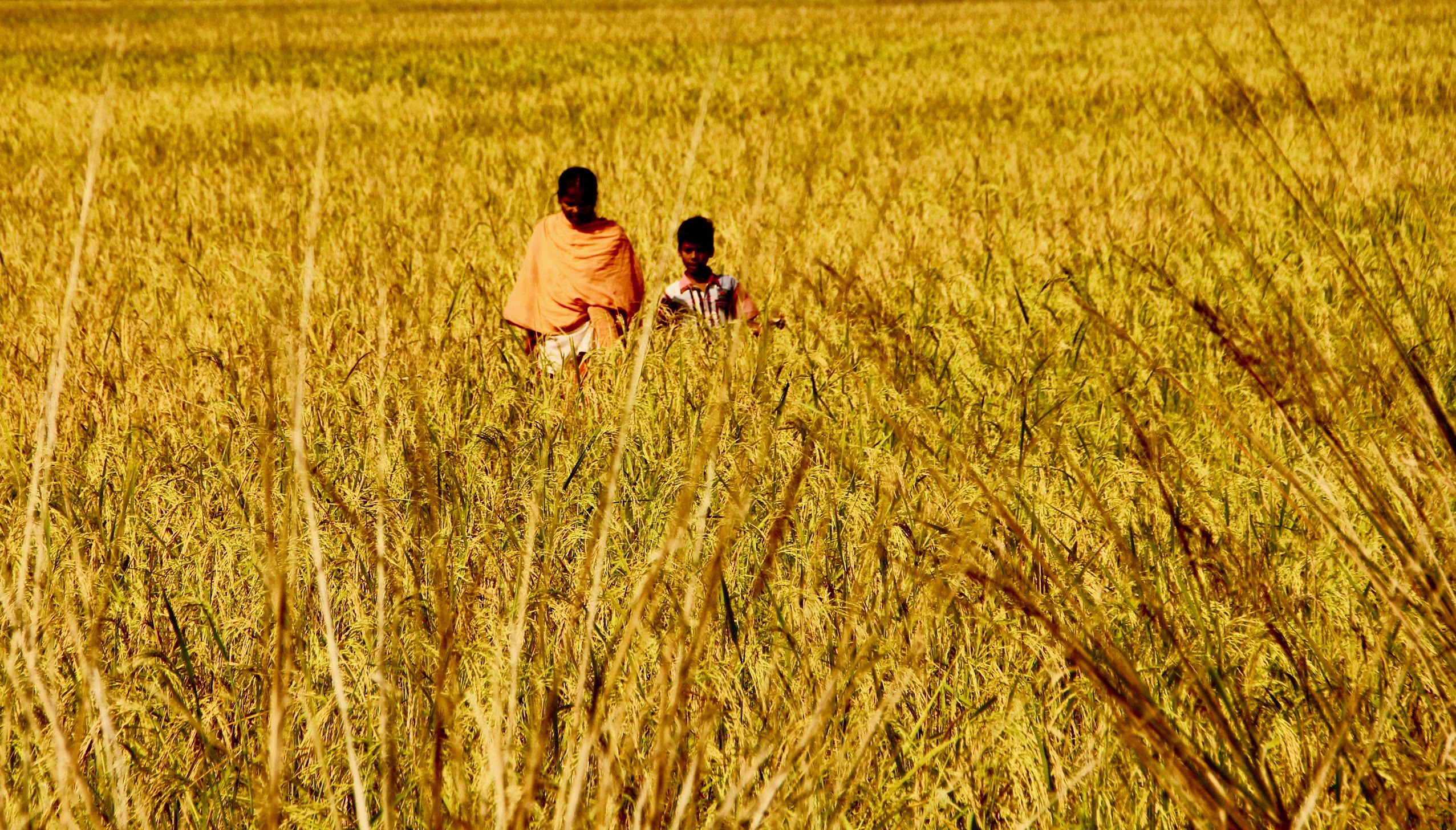
“Hello?” I hesitantly greeted, peering my head into the small room. Agufta was squatting on the ground in her lime-green sari, rolling a smooth elliptic rock over cilantro, mint, garlic, ginger and chili, mashing them into a paste. She looked up at me with a big smile, half of her face hiding behind her sari. A woman who revealed the kindness, hospitality and the resilient woman-spirit of India. A woman who welcomed me with open arms into her home, cooking me comforting food every-single-day.
“Manu is at masjid...for pray,” Agufta explained, putting one hand up to her brow, indicating prayer. “You sit with Grandma, I bring tea,” she demanded, shooing me away. Agufta was a mystery. I stood there wondering what her life must have been like, and the challenges she had endured. There was something in her eyes that was wanting to come out to reveal her true self. But she couldn’t. Deep layers of oppression had been compacted upon her free-flowing spirit. It was a part of her, only she knew. Still, I reflect on the oppression of women in the Muslim traditions. But I saw this as a reason to embrace this culture even more. To understand their traditions and have the opportunity to interact with the resilient women. I entered the room where Manu’s mother lay in bed. She immediately locked her eyes onto me and began mumbling in Urdu, putting her hand to her heart. Suddenly, Ibrahim appeared in the doorway and ran in, jumping on me. His usual greeting.
“Uncle! My camera?” He asked, scanning my body with his shining brown eyes, in search of my camera. I handed it to him, making sure he was wearing the strap before disappearing to the streets. Ibrahim helped me see a side of the daily life in Kolkata I otherwise would have missed. He revealed an innocence, an adapted eye, with no fear of overexposure. A perspective that enhanced the innocence of this chaotic place.
As I sat there, drinking tea on the cement floor, looking into the eyes of this old woman, I began to wonder how I ended up here. In this poverty-stricken Muslim family’s home in the middle of the city of joy. Coming from a white, American, middle-class family with running water, electricity, appliances, beds, couches and tables, all in a multiple story house, what right did I have to encroach upon their lives? As if I was entering a museum to gawk at an artist’s mis-understood suffering. Meeting a simple, modest, poor man, making two dollars a day, fixing my pants, asking for nothing in return. For the first time, I discovered money’s emptiness. For money does not bare a beating heart. It was only through Manu’s gesture and through buying him a cup of chai that I was able to detach from this concept of money’s independent meaning and significance. Without a heart beating unconditionally as the driving force of money’s intention, the paper which numbers are printed upon, remains futile. In this world of greed, ego and gluttony, truth is exposed through the human condition where the heart rises above the delusional self-righteousness that entraps us.
The day I was leaving Kolkata, Manu and his family rode with me to the airport. Agfuta had made me curry and rice for the plane…at this point I was accustomed to the rotten beef flavor. I noticed she packed me some extra lime. Manu, walking with me to the entrance of the airport, pointed at a chai stall. I immediately saw a man pouring frothy, milky black tea into a row of clay cups.
“One last cup of chai?” Manu suggested, already walking to the stall. We stood there sipping our chai in clay cups, staring at each other, speaking only in our gaze. Taking in the last of one another, embodying the moment within the spiced, creamy beverage, coating out spirits. I took my last sip of tea and threw the clay cup to the ground, where it shattered into pieces, rejoining the earth. As the plane took off, I watched the orange roofs and palm trees of Bengal fade into the thick haze. Sitting there, meditating on Manu’s words, one last cup of chai. Though I knew, one day, I would be back to meet Manu, for another cup of chai.
More from The Byword
Comments
*Comments will be moderated





